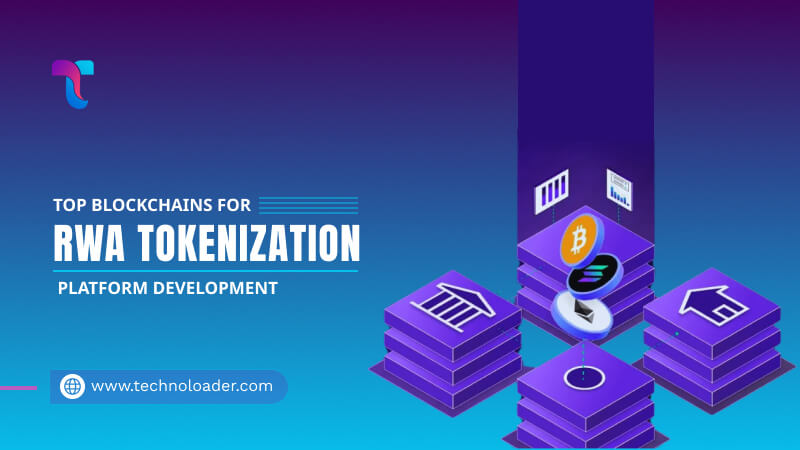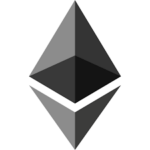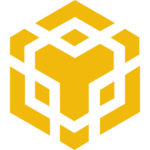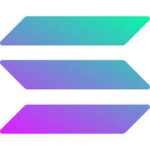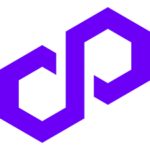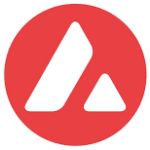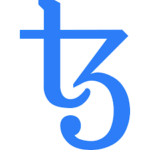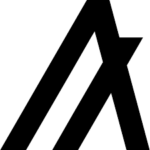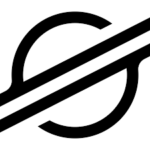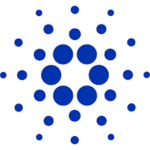The rise of Real-World Asset (RWA) tokenization has revolutionized financial markets, enabling the digitization of tangible and intangible assets such as real estate, commodities, art, and even intellectual property.
With the ability to improve liquidity, security, and accessibility, RWA tokenization platforms are gaining traction across industries. However, the success of such platforms heavily depends on the blockchain network chosen for their development.
In this blog, we explore the top 10 blockchains for RWA tokenization platform development and their unique advantages.
Table of Contents
Top 10 Blockchains For RWA Tokenization Platform Development
| Blockchain | Founded | Consensus Mechanism | TPS (Transactions per Second) | Key Advantage |
| Ethereum (ETH) | 2015 | Proof-of-Stake (PoS) | ~30 | Strong DeFi ecosystem |
| Binance Smart Chain (BSC) | 2020 | Proof-of-Staked-Authority (PoSA) | ~160 | Low transaction fees |
| Solana (SOL) | 2020 | Proof-of-History (PoH) + PoS | ~65,000 | High scalability |
| Polygon (MATIC) | 2017 | Layer-2 (PoS) | ~7,000 | Ethereum compatibility |
| Avalanche (AVAX) | 2020 | Avalanche Consensus | ~4,500 | High throughput |
| Tezos (XTZ) | 2018 | Liquid PoS (LPoS) | ~1,000 | On-chain governance |
| Algorand (ALGO) | 2019 | Pure PoS (PPoS) | ~1,000 | Instant finality |
| Stellar (XLM) | 2014 | Stellar Consensus Protocol | ~1,000 | Cross-border payments |
| Hedera Hashgraph (HBAR) | 2019 | Hashgraph Consensus | ~10,000 | Energy efficiency |
| Cardano (ADA) | 2017 | Ouroboros PoS | ~250 | Secure smart contracts |
Ethereum (ETH)
Ethereum is the most widely used blockchain for RWA tokenization due to its robust smart contract capabilities and vast developer ecosystem. The Ethereum network supports ERC-20 and ERC-721 token standards, which are critical for tokenizing assets and enabling secure transactions.
Pros:
- Strong developer community
- Established DeFi ecosystem
- Interoperability with various dApps
Cons:
- High gas fees
- Network congestion issues
Binance Smart Chain (BSC)
BSC has gained immense popularity due to its lower transaction fees and faster processing times compared to Ethereum making it one of the best blockchains for RWA tokenization platform development. It supports BEP-20 tokens, which are widely used for asset tokenization.
Pros:
- Cost-effective transactions
- High-speed block confirmation
- Compatibility with Ethereum-based applications
Cons:
- Centralization concerns
- Security vulnerabilities compared to Ethereum
Solana (SOL)
Solana stands out as the top blockchain for RWA tokenization platform development for its high-speed transaction processing and low fees, making it a suitable choice for scalable RWA tokenization platforms. The blockchain utilizes the Proof-of-History (PoH) consensus mechanism for enhanced efficiency.
Pros:
- Ultra-fast transactions (65,000 TPS)
- Low transaction costs
- High scalability for enterprise adoption
Cons:
- Relatively newer ecosystem
- Occasional network downtimes
Polygon (MATIC)
Polygon serves as a Layer-2 scaling solution for Ethereum, offering improved transaction speeds and reduced gas fees. Its growing adoption in the DeFi space makes it a viable option for RWA tokenization making it one of the best blockchains for RWA tokenization platform development.
Pros:
- Faster transactions than Ethereum
- Reduced costs through Layer-2 scaling
- Compatible with Ethereum dApps
Cons:
- Dependency on Ethereum
- Limited adoption for large-scale asset tokenization
Avalanche (AVAX)
Avalanche is known for its high throughput and low latency, making it a promising choice for RWA tokenization. Its ability to handle thousands of transactions per second without congestion is a key advantage.
Pros:
- High-speed transactions
- Low transaction fees
- Strong security features
Cons:
- Less developer adoption compared to Ethereum
- Newer ecosystem with evolving standards
Tezos (XTZ)
Tezos is a self-amending blockchain designed for scalability and security. It has been adopted by financial institutions for asset tokenization due to its on-chain governance and low energy consumption.
Pros:
- Energy-efficient Proof-of-Stake (PoS) consensus
- Strong governance model
- High security and formal verification of smart contracts
Cons:
- Lower adoption compared to Ethereum and BSC
- Slower transaction speeds
Algorand (ALGO)
Algorand is a blockchain optimized for speed and efficiency, making it ideal for financial applications and asset tokenization. It ensures low transaction costs and instant finality which make it one of the top blockchains for RWA tokenization platform development.
Pros:
- Near-instant transaction finality
- Low fees
- Strong support for tokenized assets
Cons:
- Smaller developer community
- Limited support for complex smart contracts
Stellar (XLM)
Stellar focuses on cross-border payments and asset tokenization, making it a strong candidate for RWA tokenization involving stablecoins and digital securities.
Pros:
- Fast and cost-effective transactions
- Strong cross-border payment integrations
- High liquidity support
Cons:
- Limited DeFi ecosystem
- Smart contract capabilities are less advanced
Hedera Hashgraph (HBAR)
Hedera offers a unique consensus mechanism known as Hashgraph, which ensures high security and transaction speeds, making it suitable for tokenizing real-world assets.
Pros:
- High-speed transactions (10,000+ TPS)
- Low energy consumption
- Enterprise-grade security
Cons:
- Limited decentralization
- Smaller adoption in DeFi applications
Cardano (ADA)
Cardano is a research-driven blockchain with strong security features and scalability. It supports smart contracts through the Alonzo upgrade, making it suitable for asset tokenization.
Pros:
- Secure PoS consensus mechanism
- Strong academic backing and governance model
- High scalability potential
Cons:
- Slower smart contract adoption
- Lower dApp ecosystem growth
Factors to Consider While Choosing RWA Tokenization Platform Development
Selecting the ideal blockchains for RWA tokenization platform development involves evaluating multiple factors that influence security, scalability, and cost-effectiveness.
Understanding these critical elements ensures seamless asset digitization, regulatory compliance, and long-term viability, helping businesses build robust and efficient tokenization platforms tailored to their needs.
- Security Measures
Security is paramount when selecting a blockchain for RWA tokenization. A strong security framework should include advanced encryption methods, multi-signature authentication, and decentralized validation mechanisms.
These features protect tokenized assets from cyber threats, unauthorized access, and fraudulent activities, ensuring investor confidence and regulatory compliance.
- Transaction Costs
Evaluating the cost-effectiveness of a blockchain is essential, especially for long-term sustainability. High gas fees can hinder adoption and reduce profitability.
Opting for a blockchains for RWA tokenization platform development with minimal transaction fees and efficient consensus mechanisms, such as Layer 2 scaling solutions, ensures affordability without compromising speed, security, or functionality in asset tokenization.
- Smart Contract Capabilities
Robust smart contract capabilities are crucial for automating financial transactions, managing compliance, and ensuring transparency.
A suitable blockchain should support complex programmable contracts with self-executing features, reducing manual intervention and errors. It should also offer auditability, upgradability, and compatibility with multiple coding languages for flexibility and security.
- Compliance & Regulations
Adhering to global financial regulations and legal standards is critical in RWA tokenization. The blockchain must support regulatory frameworks such as KYC/AML protocols, jurisdiction-specific compliance measures, and secure reporting functionalities.
Ensuring legal alignment minimizes operational risks and enhances investor trust in tokenized assets.
- Adoption & Community Support
A thriving developer community and widespread adoption indicate a blockchain’s long-term viability. Active community support ensures continuous updates, security patches, and innovation.
Choosing one of the top blockchains for RWA tokenization platform development with a strong ecosystem of developers, partnerships, and institutional backing enhances scalability and sustains the growth of RWA tokenization platforms.
Future Trends and Technologies in RWA Tokenization Platform Development
The future of RWA tokenization is shaped by emerging technologies that drive efficiency, security, and accessibility.
Innovations such as AI-driven smart contracts, interoperability, and eco-friendly blockchain solutions enhance functionality, ensuring tokenized assets remain attractive, sustainable, and adaptable in the evolving financial landscape.
- AI-driven Smart Contracts
Artificial Intelligence (AI) is revolutionizing smart contracts by automating compliance, optimizing efficiency, and reducing risks. AI-driven smart contracts can dynamically adjust to regulatory changes, detect fraud, and enhance transaction transparency.
This advancement increases the reliability and functionality of blockchain-based asset tokenization, making processes more adaptive and secure.
- Interoperability Solutions
Seamless integration across multiple blockchain networks enhances liquidity and accessibility of tokenized assets. Cross-chain compatibility and blockchain-agnostic solutions enable smooth data sharing, interoperability of smart contracts, and multi-chain transactions.
This fosters a more connected decentralized finance (DeFi) ecosystem, expanding opportunities for investors and institutions alike.
- Decentralized Identity Verification
Blockchain-powered identity management enhances security and compliance in RWA tokenization. Decentralized identity solutions provide tamper-proof, self-sovereign credentials that streamline KYC/AML processes, reducing fraud risks.
These systems leverage cryptographic proofs to enable seamless identity verification, improving trust and regulatory adherence while ensuring user privacy and data protection.
- Eco-friendly Blockchain Solutions
Sustainability is becoming a core consideration in blockchain development. Energy-efficient consensus mechanisms like Proof-of-Stake (PoS) and Layer 2 scaling solutions reduce carbon footprints, making blockchain adoption more environmentally friendly.
Eco-conscious blockchain platforms ensure responsible resource usage while maintaining decentralization, security, and scalability in tokenization processes.
- Expansion of Fractional Ownership
Fractional ownership democratizes investment by allowing investors to purchase smaller shares of high-value assets. This trend enhances market liquidity and accessibility, enabling broader participation in real estate, fine art, and other traditionally illiquid assets.
Blockchain-based fractionalization also simplifies asset transferability, valuation, and regulatory compliance, expanding investment opportunities.
Which is the Best Tokenization Platform Development Company in 2025?
Technoloader is a premier blockchain development company specializing in RWA tokenization platform development. With a strong focus on security, compliance, and scalability, Technoloader delivers cutting-edge solutions for asset digitization.
Our expertise spans smart contract development, decentralized applications, and blockchain consulting, ensuring tailored solutions for businesses. By leveraging innovative technologies such as AI, interoperability, and eco-friendly blockchain frameworks, Technoloader helps organizations navigate the evolving digital asset landscape.
With a commitment to continuous innovation, regulatory adherence, and client-centric solutions, we remain at the forefront of blockchain development, providing businesses with robust, scalable, and future-ready tokenization platforms.
Final Words
Choosing the right blockchains for RWA tokenization platform development is critical in achieving a secure, scalable, and cost-efficient platform. Key considerations include transaction costs, regulatory compliance, smart contract functionality, and the blockchain’s community support and adoption rate.
It’s also important to evaluate the blockchain’s performance in terms of security, decentralization, and speed. Additionally, incorporating advanced trends such as AI, interoperability, and eco-friendly consensus mechanisms ensures the platform remains adaptable to future technological advancements.
By prioritizing these factors, businesses can future-proof their RWA tokenization platform, fostering long-term growth and facilitating global market expansion.
So, hire us as your blockchain development company now and become a market leader in your business domain!
Quick Contact Us : 📞
Call/whatsapp : 👉 +91 7014607737
Telegram : 👉 @technoloader
Email : 👉 [email protected]

